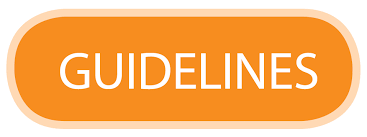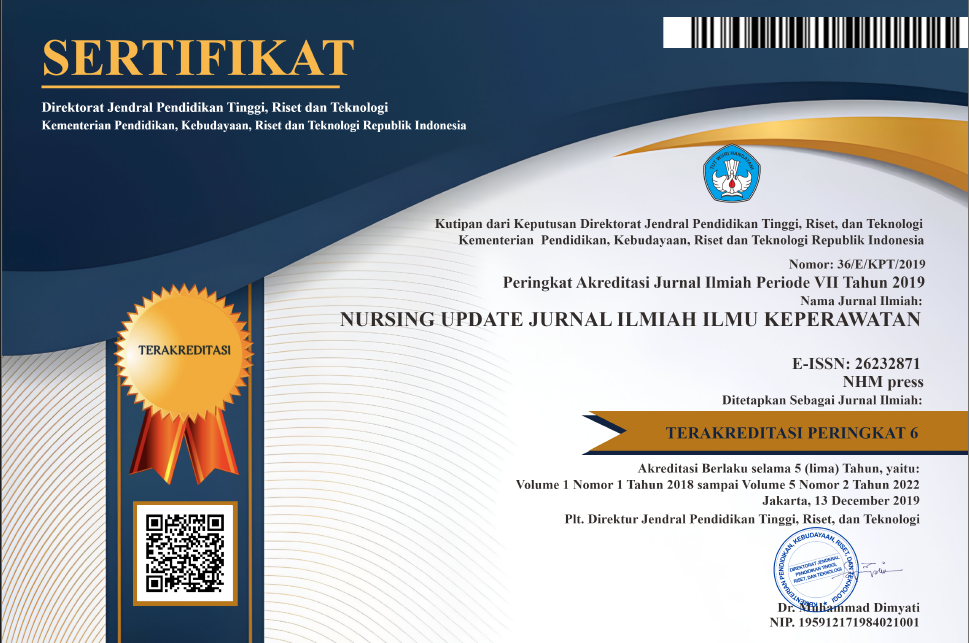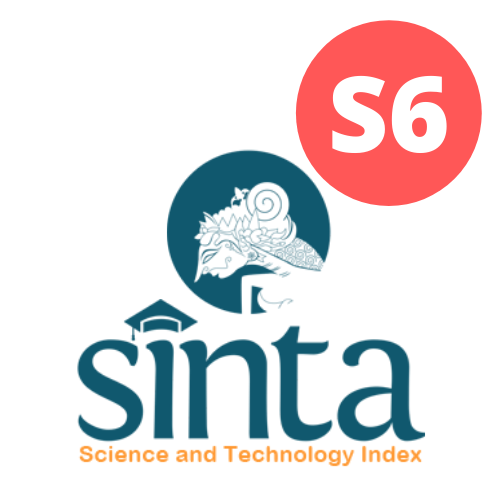PENGARUH SELF SELECTED AROMATERAPI DAN MASSAGE TERHADAP TEKANAN DARAH, FREKUENSI NAFAS DAN FREKUENSI NADI PASIEN DI ICU
Abstract
Patients in the ICU often experience hemodynamic instability because the control mechanism does not function normally. Critical patients in the ICU need appropriate treatment to reduce hemodynamic conditions. One non-pharmacological therapy that can be used is self-selected aromatherapy, which is a therapy that gives patients the freedom to choose the aromatherapy they like. Another non-pharmacological therapy is massage. Massage can increase blood circulation, stimulate muscles and provide relaxation by massaging, rubbing or squeezing parts of the patient's body. The collaboration of these two therapies affects the patient's hemodynamic status due to the release of electrochemical compounds received from the brain which causes relaxation. This research is a pre-experimental research with a one group pretest posttest design. The population in the study were 39 patients treated in the SMC ICU Room at Telogorejo Hospital for the period January – February 2024. The instruments used are bedside monitors and observation sheets. The research results showed that before being given self-selected aromatherapy and massage, the average person had a systolic blood pressure of 135.83 mmHg, diastolic blood pressure of 76.20 mmHg, respiratory frequency of 19.54 x/minute and pulse frequency of 78.11 x/minute. After being given therapy, the average systolic blood pressure was 130.29 mmHg, diastolic blood pressure 74.14 mmHg, respiratory frequency 17.69 x/minute and pulse frequency 74.97 x/minute. There is an effect of self-selected aromatherapy and massage on systolic blood pressure (pvalue 0.000), diastolic blood pressure (pvalue 0.028), respiratory frequency (pvalue 0.011) and pulse frequency (pvalue 0.000). It is hoped that this research will be an alternative therapy in stabilizing hemodynamics, and will then be implemented by nurses according to the SOP.










